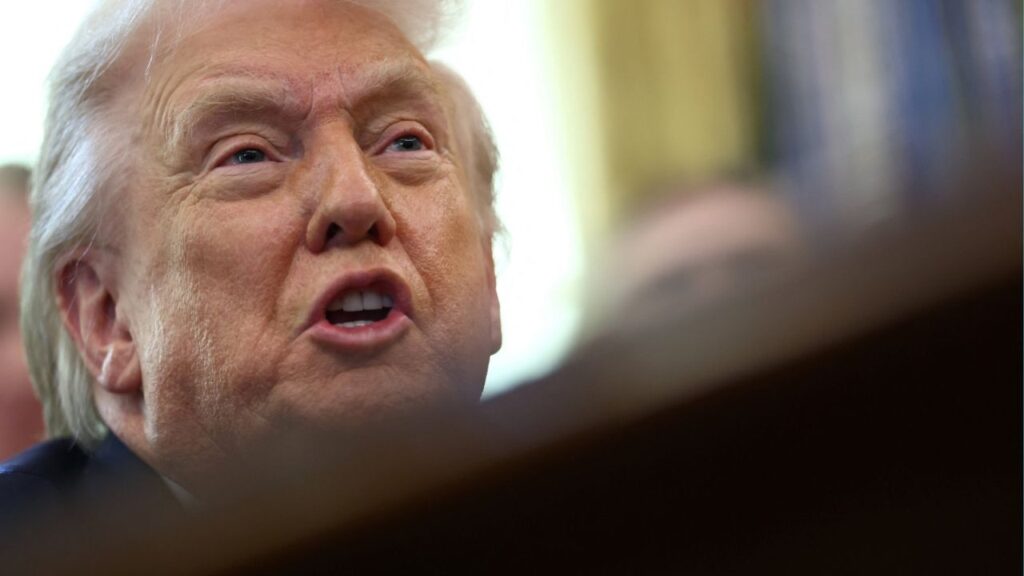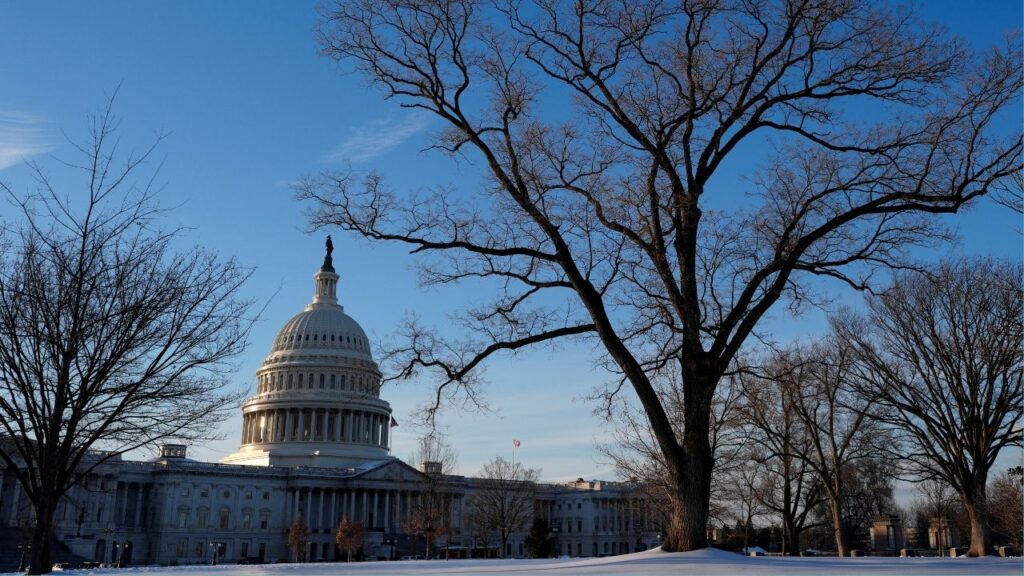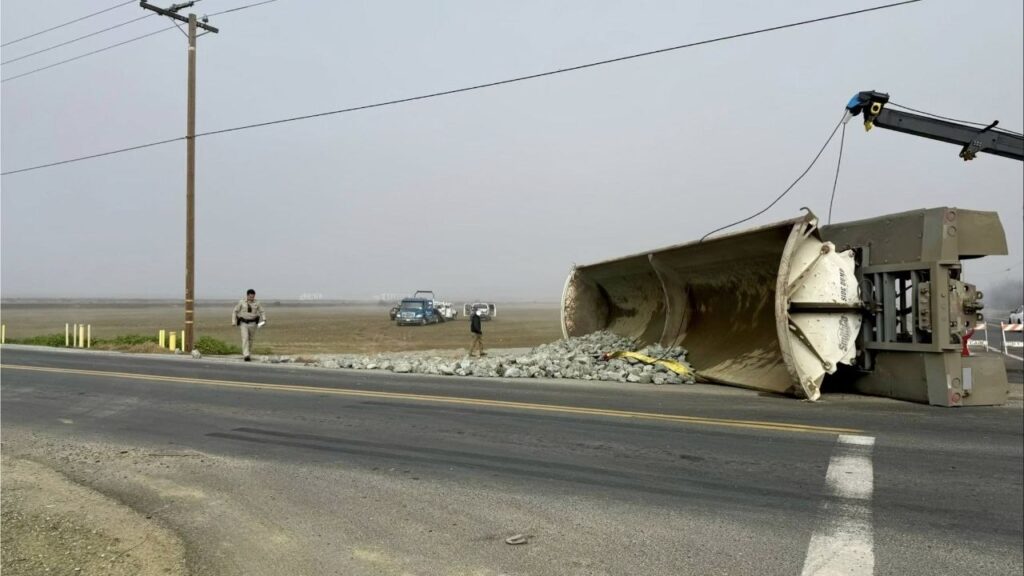Share
The California Legislature’s Latino Caucus recently circulated a memo offering a potential perk for members: A trip to Cuba to learn about “culture, history and possibly government structure and policy making.” The caucus’ nonprofit foundation, the memo said, would help pick up the tab. A visit to Israel for the Jewish Caucus was similarly underwritten, in part, by its nonprofit. The nonprofit Irish Caucus has organized three trips to Ireland for legislators and lobbyist friends.

Analysis
Laurel Rosenhall
CALmatters
These organizations also underwrite charitable work — scholarships, cultural celebrations, community film screenings — and let public officials help the state or advance causes they care about without tapping taxpayer money. But unlike campaign accounts, they often offer a tax break and can raise unlimited sums from powerful special interests, with fewer disclosure requirements.
Growing in Popularity
In California, their numbers, as well as their donations, are surging. According to a CalMatters analysis, the number of nonprofits affiliated with California legislators or caucuses grew from at least three in 2010 to at least 12 last year, with total revenue of about $2.9 million.
Much of the money has come from corporations and unions with business before the Legislature, including oil, tobacco and other lobbies whose political contributions are officially or unofficially shunned by the member’s party. The upshot, experts say, is a monetary backchannel that, while legal and even sometimes beneficial, has also become an increasingly common way for politicians to raise and spend money outside the limits even of California’s tough regulations.
“It provides another way for the lawmaker to wield influence as well as a way for those who seek to influence the legislator to curry favor,” said Rick Hasen, a professor of law and political science at the University of California, Irvine. “This gives a donor some potential extra influence that they couldn’t buy through a campaign contribution.”
“We have stricter campaign finance laws than many states,” added Ellen Aprill, a professor at Loyola Law School who specializes in nonprofit tax law. “And money will find an outlet. If you can’t do it one way, they will do it another way.”
Nationally, ethical concerns have been raised about nonprofit organizations tied to Republican President Donald Trump and his 2016 rival, Democrat Hillary Clinton. Trump recently paid $2 million to settle a lawsuit by the New York attorney general and admitted misusing Trump Foundation funds. Clinton faced years of scrutiny over whether donations to the Clinton Foundation conflicted with her work as secretary of state; an investigation, which found no wrongdoing, just wrapped up.
A 2018 report by the nonpartisan Brennan Center for Justice at New York University School of Law named presidents, governors, members of Congress and prominent mayors from both major parties who had used nonprofits to raise millions of dollars. Among them: Trump, Barack Obama, Sen. Bernie Sanders, New York Gov. Andrew Cuomo and, in California, Los Angeles Mayor Eric Garcetti. The report found, in particular, that “spending by nonprofits that coordinate with elected officials after they take office goes almost entirely unchecked.”
Closer to Sacramento, a politician’s nonprofit played a role in the corruption case that hit the California Capitol in 2013. An undercover FBI agent posing as a film producer bribed then-Sen. Ron Calderon of Montebello to advance legislation in part by paying $25,000 to a nonprofit run by his brother, former assemblyman Tom Calderon.
Wiretaps captured the senator saying, essentially, that the charity could be fattened in the short term and then tapped to generate a paycheck after he was out of public office. Both brothers wound up in prison. The nonprofit dissolved in 2015.
Despite the high-profile scandal, nonprofits with ties to the state Capitol have mushroomed over the last decade. The strategy isn’t limited to lawmakers with shared heritage. Oakland Assemblyman Rob Bonta, for example, created his own eponymous nonprofit foundation in 2017, and a group of legislators from Los Angeles County created one in 2019. Sylvia Rubio, the sister of two state lawmakers who is herself a candidate for Assembly this year, created a nonprofit Rubio Foundation last year as well.
The trend underscores the expanding role of money in politics since restrictions on political spending by corporations, including nonprofits, were lifted by the U.S. Supreme Court’s 2010 Citizens United decision. While California law caps the amount donors can contribute to politicians’ campaigns, donations to nonprofits are not limited.
“Supreme Court decisions that have opened the floodgates for corporate spending have knocked against state laws that have attempted to limit direct contributions to legislators and candidates in order to avoid corruption,” said Kathay Feng of Common Cause, a government watchdog organization.
“There are a lot of special interests that have creatively found one loophole, which is to direct those corporate or union dollars to nonprofits. What legislators have figured out is that if they can control those nonprofits, it becomes a handy backdoor to continue receiving donations from special interests.”
Where the Money Comes From
Nonprofit entities offer politicians enormous flexibility in how much they tell the public about who’s giving them money. Federal law generally does not require that nonprofits disclose their donors to the public.
State law does require California politicians to publicly report payments of $5,000 or more made to a group at the politician’s request for a legislative, governmental or charitable purpose — a transaction called a “behested payment.” Most of the nonprofits affiliated with California lawmakers report the bulk of the donations they receive as behests to the state’s Fair Political Practices Commission. The amount of money lawmakers reported raising as “behested payments” for their nonprofits grew from $105,000 in 2011 to $2.9 million in 2019, for a total of nearly $13.3 million over the nine years.
Much of it comes from industries that routinely have business before the Democrat-dominated Legislature and are consistently big spenders on state politics. Labor unions gave lawmakers’ nonprofits more than $1.9 million between 2011 and 2019, while health care organizations gave $1.4 million and telecom/cable companies gave $1.6 million, according to state data on behests.
“We are not the party,” said Assemblywoman Shirley Weber, a Democrat who chairs the Legislature’s Black Caucus. “We don’t take positions against this group or that group, whether it’s smoking or alcohol,” she said, because the caucus includes a mix of moderate and progressive Democrats with different views.
The Black Caucus nonprofit reported soliciting more than $606,000 from oil companies and more than $462,000 from cigarette makers over the last decade. The group brings in more money than any other legislative nonprofit — $1.2 million in 2018, according to its tax filing — much of it raised over an annual weekend of golfing with lobbyists at Pebble Beach. The money paid for $155,000 in scholarships in 2018, as well as an annual camp where students learn about civic leadership, Weber said.
“As long as a person wants to help and contribute to scholarships and our leadership program to build the potential of young people,” she said, “there’s never been an effort not to accept contributions from those individuals.”
The timing of many donations to lawmakers’ nonprofits shows how interest groups can use such acts of charity to burnish their images — and curry favor — in the face of political pressure. E-cigarette company Juul gave $105,000 to the Black Caucus foundation in 2018, a month after federal regulators threatened to remove flavored vaping products from the market if it didn’t make a plan to curb sales to minors. GEO Group, which runs private prisons, donated $20,000 to the Irish Caucus in July 2019 as the Legislature considered a bill to end the use of private prisons in California. Dialysis company DaVita gave nearly $250,000 combined to the Black, Latino and Women’s Caucus foundations between 2017 and 2019, as it fought a union-backed ballot measure, and then a bill, that would curb profits at dialysis clinics.
The big checks, while they might buy goodwill, don’t always pay off. The Legislature handily passed last year’s bills reining in dialysis clinics and phasing out private prison contracts (though the chair of the Irish Caucus, GOP Assemblyman Bill Brough of Orange County, voted against them, as did most Republicans, and both measures are now being challenged in court). And though legislation to crack down on flavored vapes died last year, it wasn’t because of the Black Caucus — in fact, one of its members wrote the bill.
How the Money Gets Spent
Most of the nonprofits affiliated with California lawmakers are incorporated as charitable organizations forbidden from spending on political campaigns. As long as they stay clear of trying to influence elections, the law gives wide latitude on how these groups spend their money, said Phil Hackney, a law professor at the University of Pittsburgh who previously litigated cases for the Internal Revenue Service, which regulates nonprofits.
“The notion of ‘charitable’ within 501(c)(3) is pretty expansive,” Hackney said. “It’s a broad standard and a lot of things fit under that umbrella.”
Trips to foreign countries, promotional videos, festivals, galas, and conferences — all can be acceptable activities for a politician’s nonprofit “if they’re consistent with the organization’s mission,” Hackney said.
“To the extent it starts getting used to accomplish other purposes, then you’ve got other issues. Congressmen, assemblymen, presidents – when they have these things and spend money in ways that could benefit themselves, it raises ethical issues even if it doesn’t raise an IRS tax law matter.”
The Cuba trip the Latino Caucus is planning would be its first journey overseas, said Assemblywoman Lorena Gonzalez, a San Diego Democrat who is the group’s leader. In her January memo to fellow lawmakers, Gonzalez wrote that the trip will take place over the Legislature’s spring break in April and is expected to cost each traveler about $3,500.
Later, in response to questions from CalMatters, Gonzalez said the foundation is not likely to cover any costs for legislators who make the trip, only for two staff members. But details have not been finalized, she said, because the caucus is still working on legal clearance to make the trip, given the federal government’s restrictions on travel to Cuba.
“We’re working to make sure we could have the kind of educational experience and opportunity that we thought as a caucus could be used for policy matters we care about,” Gonzalez said, pointing to Cuba’s organic farming practices as an area that could inform how lawmakers try to improve conditions for farmworkers in California.
The Latino Caucus foundation was incorporated in 2004, making it the oldest of the nonprofits affiliated with California lawmakers. It reported revenue of more than $450,000 in 2018, according to its latest tax filing, and gave out $61,000 in scholarships and $157,000 in grants to community groups. The foundation holds an annual fundraiser at the Disneyland Hotel, where lawmakers mingle with lobbyists over dinner after a day of Latino Caucus policy meetings. The Disneyland location makes it easier for participants to include their families, Gonzalez said.
The Legislature’s Jewish Caucus foundation is much newer and brings in far less money — less than $50,000 in 2018, its tax filing shows. The caucus organized a trip to Israel last year to foster economic ties that California and Israel laid out in a 2015 agreement that calls for cooperating on a host of issues including academic research, cybersecurity, and water management practices. Two non-legislative foundations paid for 16 legislators to go on the trip while the Jewish Caucus foundation paid for two staff members to attend, said Sen. Ben Allen, a Santa Monica Democrat who chairs the caucus.
“We had very substantive meetings the entire week. It was packed with meetings about everything from the economic situation to the political situation,” Allen said.
The Jewish Caucus also puts on an annual Holocaust memorial service at the Capitol, and its foundation spends roughly $10,000 flying survivors and U.S. military veterans to Sacramento for the ceremony and hosting them for a brunch.
The Irish Caucus is set up differently from the others. Most caucuses are part of the Legislature, receiving some government funding, and operate their nonprofits as an outside arm with private donations. The Irish Caucus itself is a nonprofit, incorporated under the tax code used by social clubs, not charitable organizations. Brough, the assemblyman who chairs it, said he did it that way to avoid using any taxpayer money.
The caucus is meant to provide fellowship for people with Irish heritage as well as connections for companies with a presence in Ireland and California, he said. It reported raising $56,000 in 2018 and has organized three trips to Ireland — 52 people went last year, Brough said, including a bipartisan mix of legislators, lobbyists and staff. The caucus paid for the two staff members, Brough said, while other participants covered their own travel costs.
“We’re ombudsmen between the state and Ireland for relationships and any… companies that want to come here and settle,” Brough said. “We think we’ve been a facilitator for the economic cooperation between California and Ireland.”
Most nonprofits tied to the Legislature do not take trips abroad. More commonly they report spending on community events, such as recognition of local women leaders, an Armenian neighborhood tour or a Lunar New Year celebration.
“Our foundation reflects the fact that our numbers have significantly grown in the Capitol… and the deepening engagement that our caucus has had with broader Asian Pacific Islander communities around the state,” said Assemblyman David Chiu, a San Francisco Democrat who helped organize town hall meetings in California’s varied Asian communities as leader of that caucus.
The nonprofit affiliated with the Technology Caucus puts on an annual policy conference in Silicon Valley. Over the last two years, according to tax returns and the nonprofit’s lawyer, it made three charitable donations, including one for $10,000 to another foundation that shares a board member with the Tech Caucus foundation board.
Tax filings from 2018 also show that the largest donation made by the foundation created by Assemblyman Bonta was a $25,000 payment to Literacy Lab — a nonprofit where his wife was CEO. Bonta said the funds are intended as a loan to support a group that helps children in his district. In 2019 his foundation gave out $26,000 in college scholarships, he said, and this year it helped sponsor a college fair in his district.
Lawmakers from Los Angeles County organized a nonprofit late last year, so public records are not yet available to see how much money it’s raising or where it’s being spent. Assemblywoman Sydney Kamlager, a Democrat who leads the Los Angeles County Delegation Foundation, said the private funding paid for renting a room and catering so legislators could hold a meeting to discuss such policy issues as housing and transportation.
Why would public officials from the same region need a nonprofit to pay for a meeting room when they work together four days a week in the Capitol building?
“Being able to do that is easier said than done,” Kamlager said. “(Gathering) 40 people with very different schedules, representing various parts of the county, which is very big, is challenging. It really is important that we carve out specific time to talk about those issues.”
Problems in the Past
The nonprofit group involved in the FBI sting of former California lawmakers Ron and Tom Calderon played a small role in a much larger corruption case that involved Ron Calderon taking nearly $160,000 in bribes and Tom Calderon acting as an intermediary to conceal some of the take. As an undercover FBI agent made arrangements to send the $25,000 bribe to Californians for Diversity, the nonprofit, he recorded Ron Calderon saying he and his brother planned to draw income from it after leaving public office.
“Tom and I, down the road, we build that up, we can pay ourselves. Just kind of make, you know, part of a living,” Calderon said, according to a leaked affidavit.
Good government advocates cite examples like this as the risk the public incurs letting political nonprofits proliferate with insufficient oversight. With no limits on the amount of money they can accept from groups that lobby the Legislature, nonprofits can be a powerful vehicle for trying to influence politicians, said Feng, of the Common Cause watchdog group.
“The way of giving large amounts of money to be able to support work that legislators care about is to give it to these nonprofits,” Feng said.
“That work they care about is sometimes legitimate support of activities that one would truly characterize as charitable … But we have seen abuses where individuals were (padding) their own pockets.”
CalMatters.org is a nonprofit, nonpartisan media venture explaining California policies and politics.
RELATED TOPICS:
Categories

US Appeals Court Rejects Challenge to Trump’s Efforts to Ban DEI


















